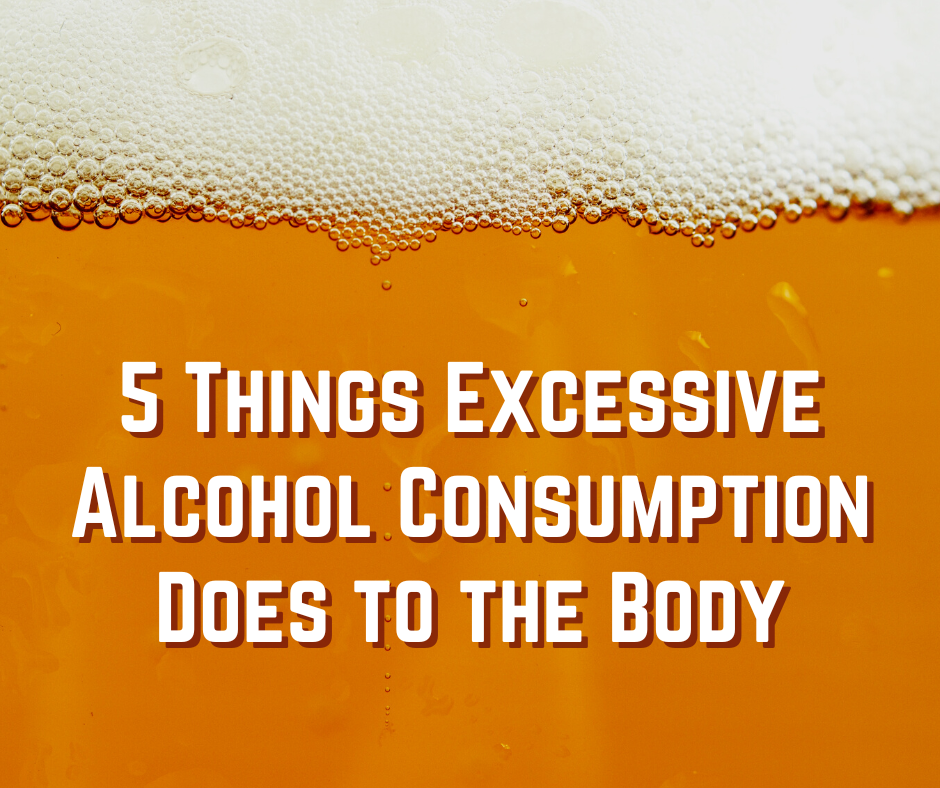Think twice before popping open a can of beer or spending another night at the bar! Alcohol doesn’t just make you do questionable decisions, vomit all over the place, and cry about something mundane. It also puts your body through the grinder and leaves it worse for wear. Trust us, you’re going to want to avoid excessive alcohol consumption by the end of this article!
1. It Changes Your DNA
There are two genes in our DNA that gets affected by alcohol consumption: PER2 which affects the biological clock, and POMC which controls our stress levels. Together, these changes are detrimental to you because they encourage you to crave alcohol more.
Yes, you heard that right—the more you drink alcohol, the less likely you are to stop. And since this alteration is at a DNA level in that your genes have literally been modified, it’s pretty difficult to go cold turkey.
That’s probably why so many people around the world today suffer from alcoholism. So, instead of taking months, years, or even decades to cure alcoholism, it’s best to lay off the drinking altogether.
2. It Leaves You Vulnerable to Cancer
If you haven’t heard already, drinking alcohol increases your risk of developing certain cancers. Liver, throat, breast, and colon cancer are just some of the diseases you are prone to the more you drink alcohol. As you can imagine, the risk of getting these cancers is larger and larger the more excessive your alcohol consumption is.
According to the National Cancer Institute, with excessive alcohol consumption, you’re five times more likely to get esophageal cancer, almost twice more likely to get mouth and throat cancer, and significantly more chances of getting breast cancer. In fact, researchers discovered that alcohol contributed to 5.5% of cancer diagnoses and over 6 million deaths worldwide.
3. It Causes an Imbalance in Your Gut
Our gastrointestinal tracts are lined with a ton of bacteria. Some of these are good and have a ton of health benefits—they aid in digestion, protect us from diseases from the food we eat, and absorb vitamins and nutrients. Some are bad and can lead to awful diseases and conditions. We must always have more good bacteria than bad.
When we drink alcohol a lot, we disrupt this balance of good and bad. Research has shown that alcoholics often damage their intestines because they have more bad bacteria than good ones. This then leads to problems with our digestive tract, immune system, and so much more.
Remember, our stomach supplies the energy around our body. If there’s something with our stomachs, there will be something wrong with our bodies too! Thus, it’s important we supply our gut with plenty of gut-healthy foods.
4. It Affects Your Long-Term Cognitive Function
If you’ve ever been to a college fraternity or sorority party, then you’d probably know what it feels like to pass out drunk. You wake up with a throbbing headache with very vague recollections of what happened the night before—if you’re lucky. Some of us won’t even know what we did last night until someone else mentions it to us!
The more you experience this kind of thing, the more your brain is going to be affected. Eventually, you’ll find yourself worse at processing thoughts, remembering memories, solving problems, and more. Not only do you leave yourself vulnerable to cognitive diseases like strokes and Alzheimer’s disease, but also mental health conditions like depression and anxiety.
With alcohol, you’re a literal no-brainer!
5. It Disturbs Your Hormones
The endocrine system is one of the most omnipresent systems in the body. It serves as a line of communication between the brain and the rest of the body. Almost everything you do involves a hormone or two! Need to sleep? Cortisol. Need to eat? Ghrelin. Need to feel happy? Serotonin. Need to become an adult? Growth hormone.
Though they’re so prevalent they are in our bodies, they can be pretty delicate. It’s easy for hormone imbalances to happen, especially when you’re drinking alcohol. Hormone imbalances cause a ton of horrible diseases like diabetes, cardiovascular diseases, cancer, thyroid disease, reproductive disorders, behavioral problems, and so much more.
